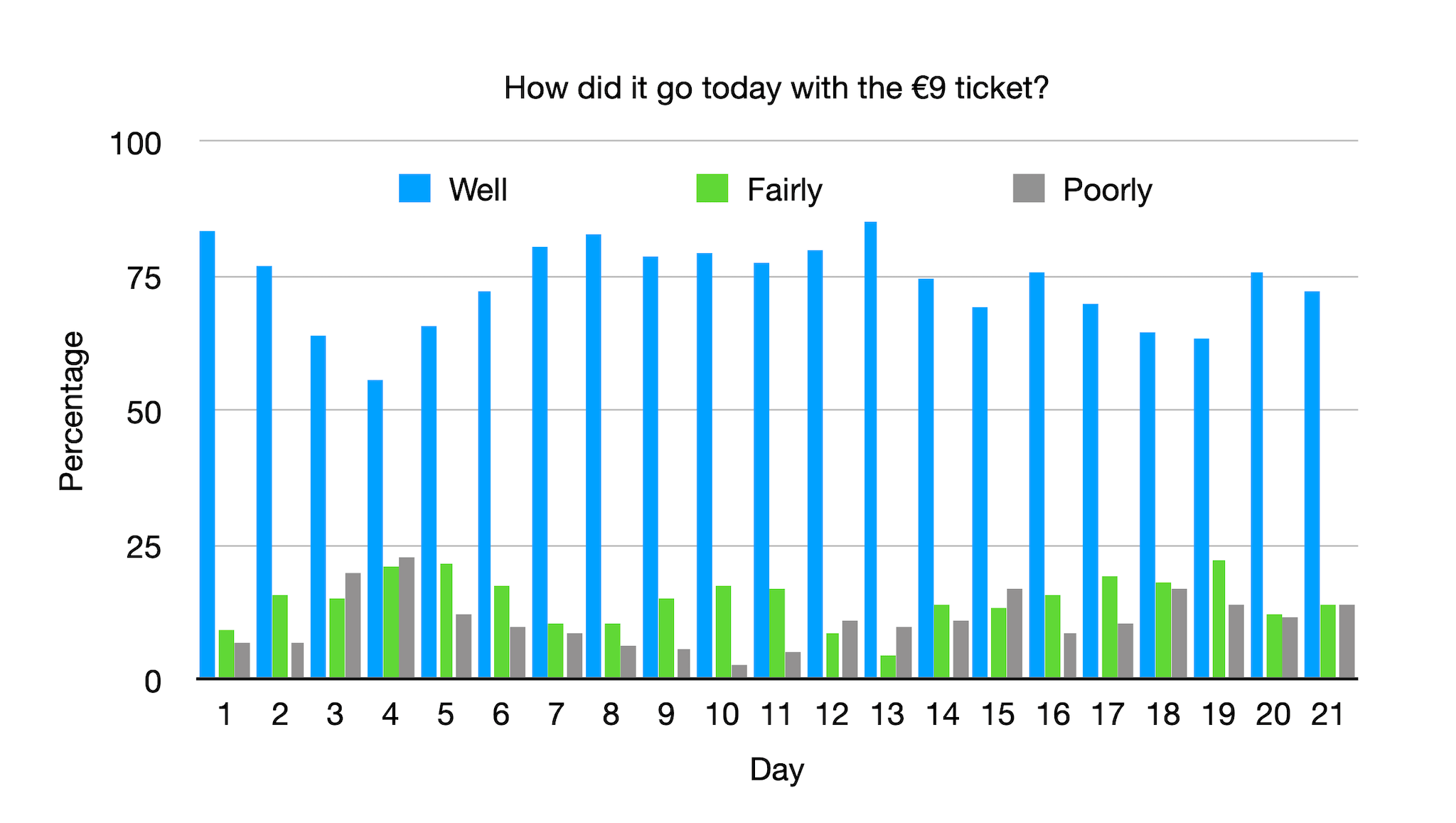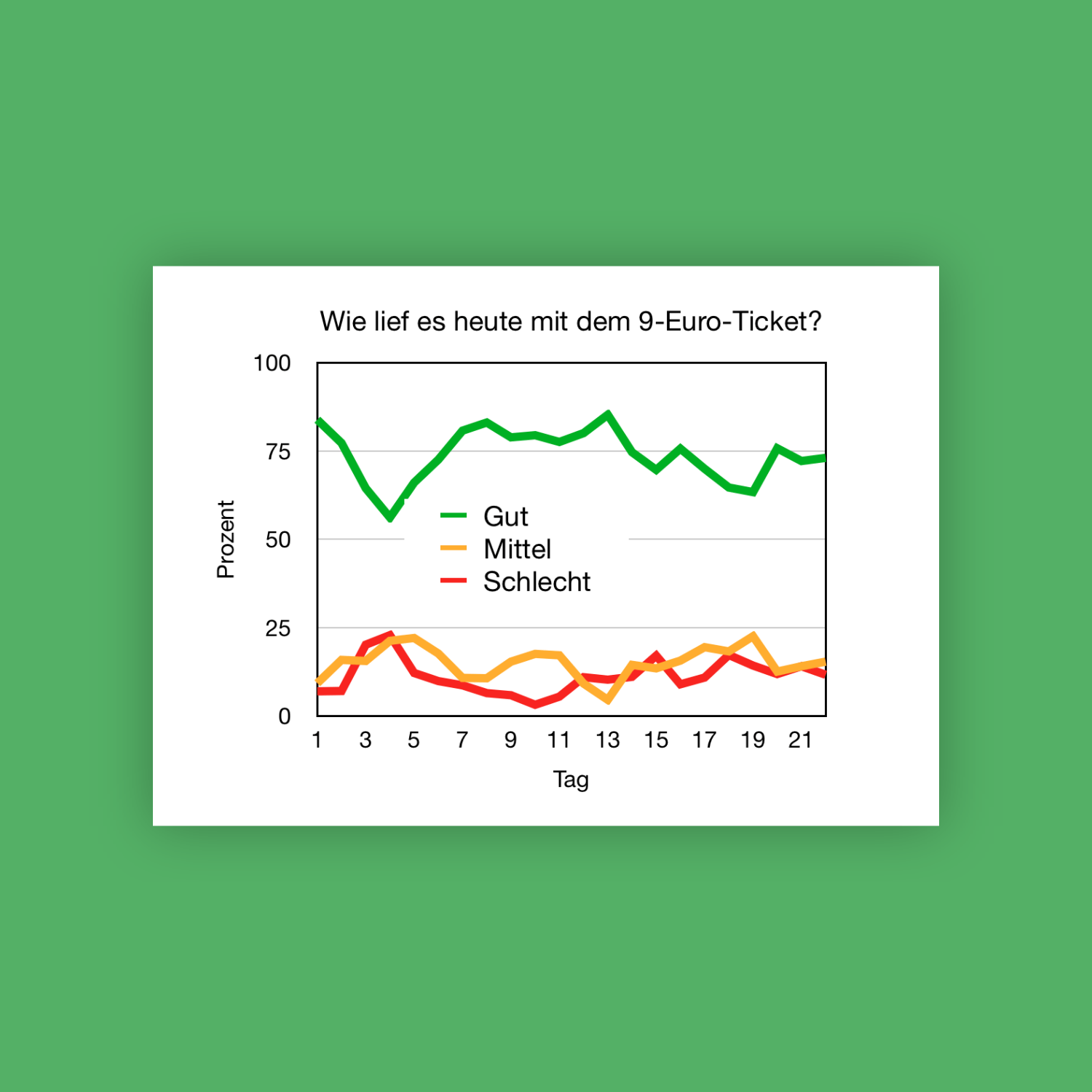You’ve probably heard of the €9 ticket.
Germany’s response to record inflation and rising energy prices allows commuters and leisure travelers to roam the entire country for just nine euros a month. This applies to trains, buses, trams, metros and all other sorts of regional and local transport.
The ticket came into existence on 1 June after an extremely short period of preparation. Already at 5 in the morning that day, major news outlets such as Der Spiegel reported on chaos and packed trains. It is an interesting observation, as even in Germany, there are hardly any commuters around that early.
But the tone was set.
Other media tuned in, making the €9 ticket seem like a failure only hours after its start. This was in marked contrast to what I was picking up over the day from people on social media. Yes, some issues were reported. But on the whole, the transport system seemed to be able to cope with the demand.

Being sat in Finland, as you know, I couldn’t make my own research on the ground. So in the evening, I asked my followers on Twitter: How did it go today with the €9 ticket?
The question was deliberately kept simple. The response was surprisingly clear: 83.8% said it went “well”, 9.2% said it went “fairly” and only 6.9% said it went “poorly”.
No chaos then? Well, I was intrigued to find out. I needed a way that would be statistically at least somewhat sound. My approach was to repeat the poll every evening from then on – same question, same answer options and roughly the same running time (you can’t schedule polls on Twitter, but I did okay starting it manually every day). Three weeks later, an interesting data set had emerged, consisting of 2,626 votes in total.
The key result: On every single day, the absolute majority, on average 73 percent, reported a good experience with the €9 ticket. For all facts and figures, check this thread on Twitter.

Yes, I hear you say that my followers are certainly biased because a good proportion of them are railway nerds like I am. And yes, the critical scientist in me could not agree more. But at least the data survived two sanity checks.
First, satisfaction shows a drop at Pentecost (June 3–6), a public holiday in Germany that is very popular for short trips. There were problems with overcrowded trains on that weekend, as there are every year. Hence, the data is able to reflect a real situation that has happened on the rails.
Second, I was lucky that on 8 June another Twitter user from a completely different bubble (definitely not railway nerds) asked the same question with the same answer options to his 60k followers. At the end of the day, the results of our polls were amazingly the same. So amazingly that we have to assume they are representative at least among people on Twitter.
Although only a hobby project, my little study received some attention also outside the Twitter world. One direct result was this radio interview with Finnish public broadcaster Yle. Later, on the finale of the €9 ticket in August, I would do another survey with a more detailed questionnaire.
Buy Me a Coffee
Projects like this I do in my spare time and completely pro bono. If you like, you can support my work with a small donation. Thank you very much!
